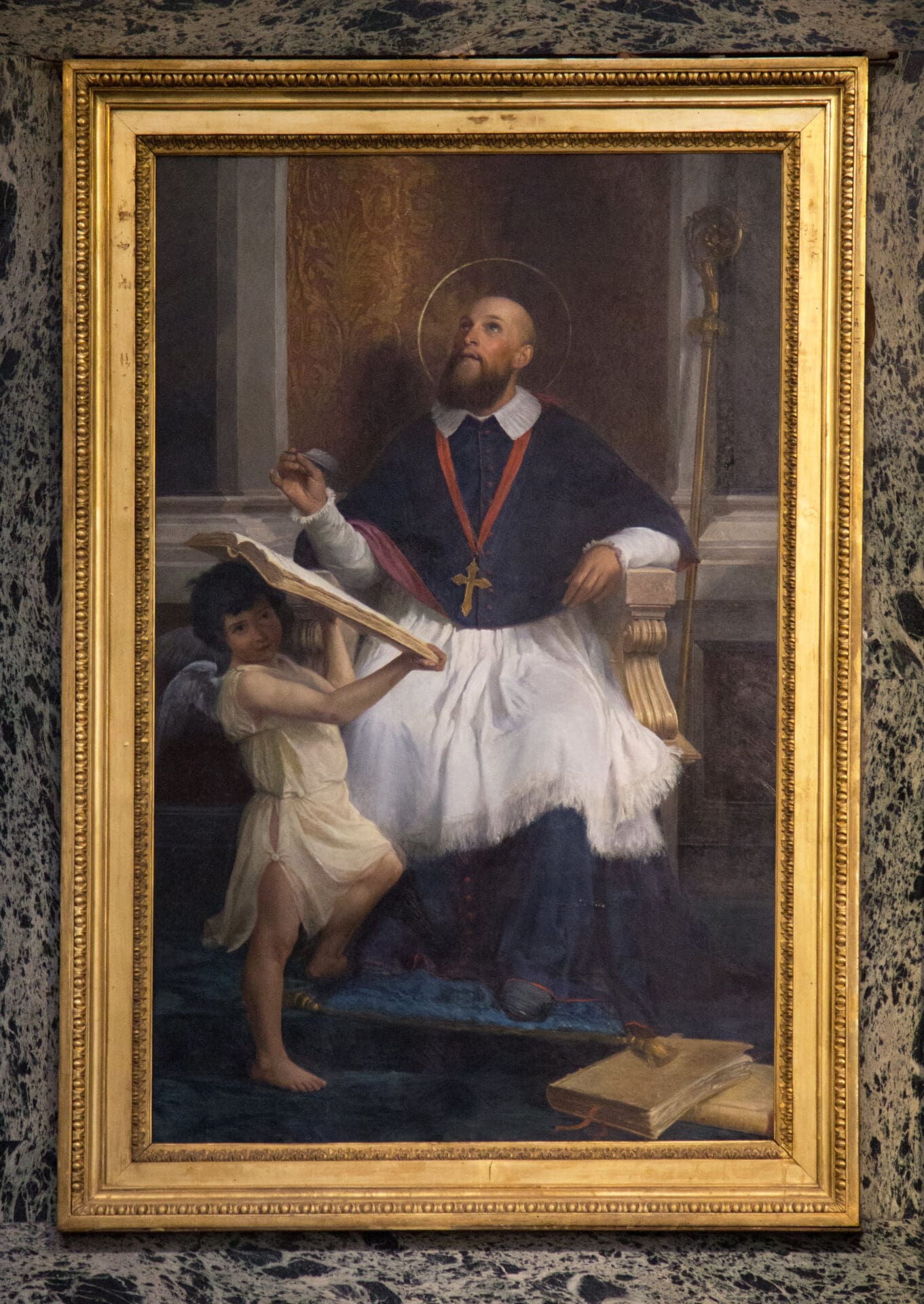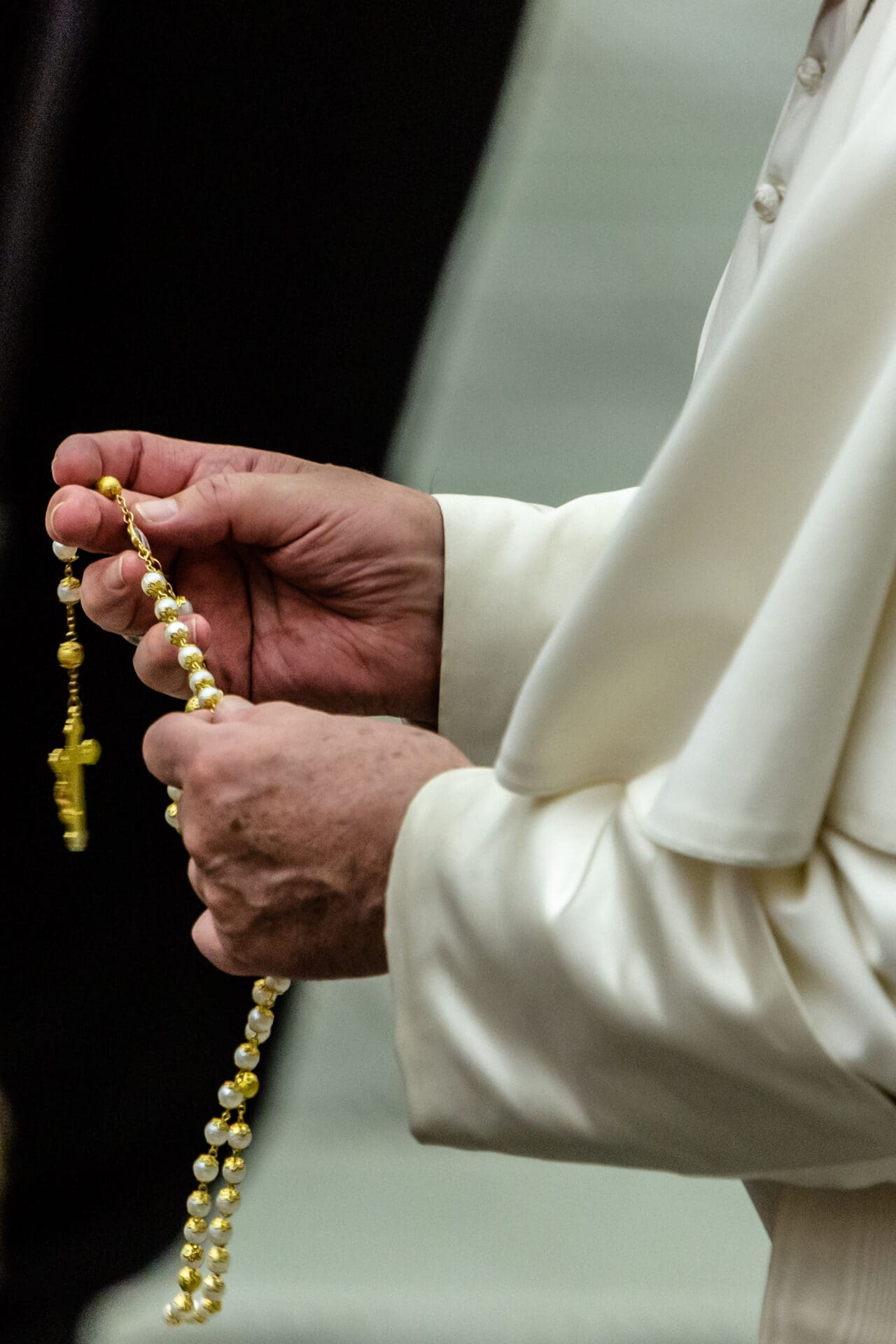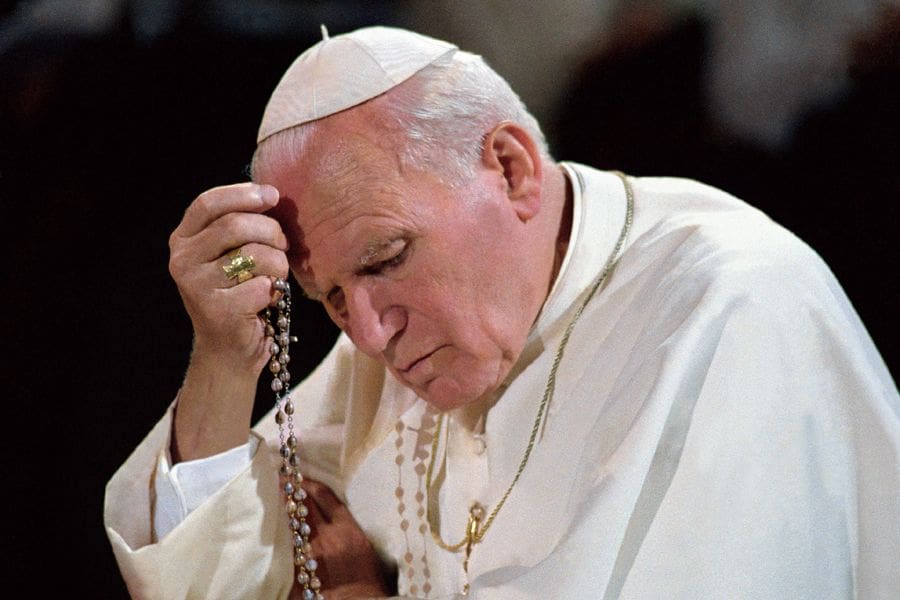December 28, 2022, marks the 400th anniversary of the death of St. Francis de Sales. As the bishop of post-Reformation Geneva, he devoted much of his time to reconverting Catholics who had embraced the heretical tenets of the Geneva-based Protestant reformer John Calvin. He accomplished a miraculous number of such conversions through his trademark style of speaking and writing the truth in charity. This gentle approach is found in tracts which he wrote and left at private residences throughout Geneva (because of his effective use of writing media, St. Francis is considered the patron saint of writers and journalists) and he effectively employed the same charitable style in the spiritual direction of souls, preaching, and hearing confessions.
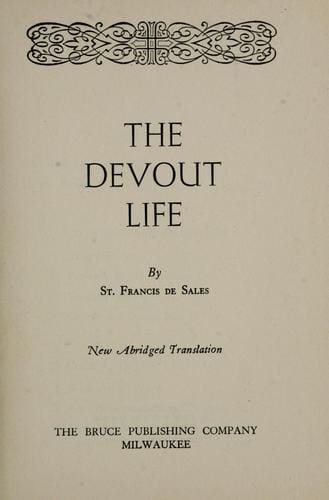
Among de Sales’s works is a classic of sacred literature which has shaped the minds, hearts, and souls since its first publication in 1609, Introduction to the Devout Life. This little book is unique because it is written as a series of instructional letters to a lay woman—the wife of a wealthy courtier. “Philothea” (as de Sales addresses her in the book) is instructed on how to live the life of a holy woman in the world around her, not as a monastic might, but as a regular lady, living a regular life, having regular duties and obligations, including those she owes to her family and children. Francis instructs Philothea on how to live a devout life in a way that balances the needs and realities of ordinary life with the true call to holiness. He does this by outlining a method of living through reconciliation with God, prayer, the sacraments, and virtue.
Introduction is particularly remarkable because it was written to and for the laity, a fact which may seem commonplace today. Of course, in another sense, all who wish to achieve holiness are “Philothea” and this work is for every one of us—clergy, laity, and religious alike. But how does St. Francis de Sales’s advice to Philothea synthesize with modern life? Is a devout life also a liturgical life? How do de Sales’s instructions to be devout accord with the Second Vatican Council’s desires for liturgy to be the source and summit of all the Church’s actions? The word “devout” is something that may cause confusion to the modern audience. After Vatican II, the devotional practices of the Church were tamped down, redirected from the liturgical sphere to a private one, lending to a preference for worship rooted in liturgy.
Both/And
While Sacrosanctum Concilium states “the liturgy is the summit toward which the activity of the church is directed” (10), at the same time the document says that the liturgy “does not exhaust the entire activity of the Church” (9). Though the liturgy be the “font from which all her power flows” (10), at the same time, “popular devotions are to be highly commended” (13). Sacrosanctum Concilium notes that the spiritual life, while having its source in the liturgy, is not limited to the liturgy: “The Christian…must also enter unto his chamber to pray to the Father, in secret, yet more, according to the teaching of the Apostle, he should pray without ceasing” (12). This fulsome prayer life is in fact what de Sales mean by “devout life.” It does not mean simply that one practices devotions, nor is it contrary to a liturgical life.
“What is a devout life?” is answered immediately in the opening paragraphs of the book: “Genuine living devotion, Philothea, presupposes love of God, and hence it is simply true love of God. Yet it is not always love as such. Inasmuch as divine love adorns the soul, it is called grace, which makes us pleasing to his Divine Majesty. Inasmuch as it strengthens us to do good, it is called Charity. When it has reached a degree of perfection at which it not only makes us do good but also do this carefully, frequently, and promptly, it is called devotion.”[1]
In other words, a devout life reflects a soul who, through love, conforms her life to God and habitually chooses the good. Charity is the source of devotion. De Sales writes, “Charity and devotion differ no more from one another than does flame from the fire. Charity is a spiritual fire and when it bursts into flames it is called devotion. Hence devotion adds nothing to the fire of charity except the flame that makes charity prompt, active, and diligent not only to observe God’s commandments but also to fulfill his heavenly counsels and inspirations.”[2]
The foundational paragraphs of Introduction clearly express that a devout life is a life rooted in prayer and sacraments which then out of habitual charity lives a life of virtue, transforming the soul into union with God. This is applicable to all persons, no matter their state in life. De Sales’s term, “devout,” should in no way be associated with something contrary to modern ideas of a sacramental, liturgical life. These truly are the same. To illustrate this further, his methods for achieving a devout life should be examined.
Steps to Christ
The first step in the method is the choosing of Christ. This seems the simplest of all things but is profound in action because the turning of one’s life toward the open arms of Jesus Christ is simultaneously the turning away from and rejection of a life of sin. De Sales details a process of purgation of the soul whereby a series of meditations draws the heart to step into God’s grace and live without reproach. This section culminates in instruction for sacramental confession.
St. Francis prophetically promotes the idea of intelligent worship which is the cornerstone of Sacrosactum Concilium.
Once the soul has turned toward God and turned away from sin and the attachments to sin, the second part of this method is the life of prayer. “Just as little children learn to speak by listening to their mothers and lisping words with them, so also by keeping close to our Savior in meditation and observing his words, actions, and affections we learn by his grace to speak, act, and will like him.”[3] He says the subject of our meditations should be the life and passion of Christ. “His life and death are the most fitting, sweet, wonderful and profitable subject that we can choose for our ordinary meditations.”[4]
Prayer is divided into vocal prayer and mental prayer. In addition to classic vocal prayers in Latin, he encourages the learning of these prayers in the vernacular so that one may meditate upon them and understand them better. He lauds the rosary as a useful prayer when recited properly, taking care to learn the method of recitation through the “little books that teach us the way to recite it.”[5] In both ways, he does encourage the intelligent worship that was the desire of the liturgical reforms of the Second Vatican Council.
Towards the end of this rich second part on the subject of prayer is a section on the attendance at Holy Mass. While it seems to be the third step in his method, it is clear by his writing that this is truly the source and summit of the devout life. “Thus far I have said nothing of the sum of all spiritual exercises—the most of divine charity, the mystery in which God really gives himself and gloriously communicates his graces and favors to us. Prayer made in union with this divine sacrifice has inestimable power, Philothea, so that by it the soul overflows with heavenly favors…make every effort therefore to assist every day at holy Mass so that together with the priest you may offer up the sacrifice of your Redeemer to God his father for yourself and for the whole church.”[6]
It is notable that de Sales encourages Philothea to attend daily Mass, and to offer herself in union with Christ and in supplication for the whole Church. He outlines the proper way to attend Mass by offering preparation in union with the priest, including sorrow for sins, and throughout the Mass by meditating on the life of Christ, resolving to live a life in union with Christ and obedience to his Church, meditating upon his death and recognizing that during the anaphora of the Mass the mysteries of the passion and death “are actually and essentially represented in this Holy Sacrifice. Together with the priest and the rest of the people you will offer them to God the Father for his honor and for your own salvation…. [S]trive to excite a thousand desires in your heart and ardently wish to be joined and united forever to our Savior in everlasting love.”[7] Then after communion he details an act of thanksgiving.
Prophetic Piety
Bear in mind, the historical context of the Mass at this time did not avail laity to have the words of the Mass such as the small personal missals provided during the 20th century. His idea of directing Philothea’s thoughts to the sacred action in union with the priest was unique for the time. A great pastor of souls, he outlines how to attend Mass with purposeful intention, understanding that our participation in it is in union with the sacrifice of Christ being offered. There is no conflict here between de Sales’s Introduction and our current practice of liturgy. St. Francis prophetically promotes the idea of intelligent worship which is the cornerstone of Sacrosactum Concilium. The Council fathers were emphatic about this point in their document on the liturgy: “The Church, therefore, earnestly desires that Christ’s faithful, when present at this mystery of faith, should not be there as strangers or silent spectators; on the contrary, though a good understanding of the rites and prayers they should take part in the sacred action conscious of what they are doing, with devotion and full collaboration” (48).
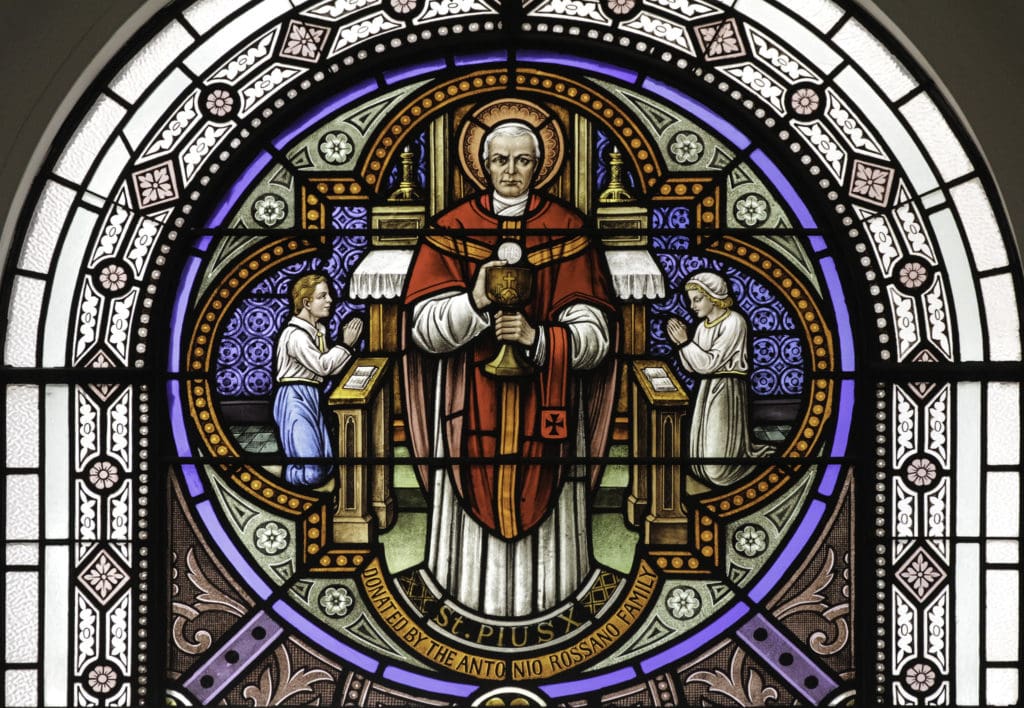
It was also not a common practice during de Sales’s time to receive communion frequently. Not until Pius X published his 1905 decree Sacra Tridentina was frequent communion encouraged such as we practice it today. Yet Francis de Sales was a supporter of at least weekly communion, if not more frequently, according to the individual and his spiritual director. Such open encouragement for frequent communion was uncommon at the time. But it was de Sales’s view that reception of this sacramental food which nourishes and sustains the soul should not be denied if the soul is in the state of grace to receive it. For this reason, he also encouraged the laity to avail themselves of weekly confessions before reception of communion. Eloquently and emphatically, he defends this practice of frequent communion. He writes:
“If worldly people ask you why you receive communion so often, tell them that it is to learn the love of God, to be purified from your imperfections, delivered from misery, comforted in affliction, and supported in weakness. Tell them that two classes of people should communicate frequently: the perfect, because being well disposed they would be very much to blame if they did not approach the source and fountain of perfection, and the imperfect, so that they rightly strive for perfection; The strong lest they become weak, and the weak that they may become strong; The sick that they may be restored to health, and the healthy less they fall sick.”
Furthermore, de Sales adds, “Tell them that for your part you are imperfect, weak, and sick and need to communicate frequently with him who is your perfection, strength, and physician. Tell them that those who do not have many worldly affairs to look after ought to communicate often because they have leisure to do so and those who have great undertakings because they have need to do so, since one whose labor is hard and is weighed down with troubles should eat solid food and do so frequently, tell them that you received the Blessed Sacrament often so as to learn how to receive it well, for we hardly do an action well which we do not practice often.”
While Introduction to the Devout Life is now over 400 years old, it is still applicable to modern lives, to liturgical lives, and to a post-Vatican II Church.
He continues: “Go often to communion, Philothea, as often as you can with the advice of your spiritual director. And, believe me, just as hares in our mountains become white in winter because they neither see nor eat anything but snow, so by adoring and eating beauty, purity and goodness itself in this divine sacrament you will become wholly beautiful, wholly good, and wholly pure.”[8]
Regarding the Divine Office, he says Philothea should assist at the hours whenever possible, especially at Sunday vespers, saying that “there is always more benefit and consolation to be derived from the public offices of the Church than from private, particular acts. God has ordained that communion in prayer must always be preferred to every form of private prayer.”[9] Sacrosanctum Concilium concurs that liturgical prayer is of primary importance by saying, “every liturgical action, because it is an action of Christ the priest and of His Body, which is the Church, is a sacred action surpassing all others” (7), and also, “pastors of souls should see to it that the chief hours, especially Vespers, are celebrated in common in church on Sundays and the more solemn feasts. And the laity, too, are encouraged to recite the divine office” (100).
Live into Jesus
The remainder of the book is dedicated to leading a virtuous life with extensive instruction in virtue, advice such as counsel against temptations, instructions for devotional practice, true Christian friendship, modesty in speech, how to deal with anxiety, and instructions for various states in life, to name merely a few. The third part is the largest part of the book because a robustly lived Christian ethos is the hardest part of the devout life. Prayer and liturgy adhere to a formula: but life is messy. While the modern reader may find some of his analogies antiquated, the enduring truth he puts forth rises above his somewhat dated style and shows itself to be quite applicable, wise, and undying in eternal truths. This is the very definition of a classic of sacred literature.
The exclamatory phrase “Live Jesus” serves as bookends in the text, appearing in the dedicatory prayer and in the very last paragraph, as the final sentiments of this holy bishop. “Vivre Jésu! Vivre Jésu!”—a motto for Christian living, a battle cry, a triumphal song. What does it mean for the soul to live Jesus? “Live Jesus” is to conform ourselves to him, becoming one with him by our sacramental life, divinized into the Holy Trinity. Introduction to the Devout Life is an instruction manual for “Live Jesus!” whereby a soul must first conform to Christ by turning away from sin, seeking reconciliation with the Father through Christ, and entering union with God through a life of charity rooted in prayer, frequent reception of Holy Communion and Confession, obedience to one’s state in life, and the virtuous life which is borne through this living charity in the soul. While Introduction to the Devout Life is now over 400 years old, it is still applicable to modern lives, to liturgical lives, and to a post-Vatican II Church. It is a timeless classic full of truth and prophetic wisdom, accounting for deep spiritual probing of the heart, instructions for intelligent worship, and frequency of sacraments. “Live Jesus!” is a choice and invitation—live Jesus in me, through my lived experience of liturgy, study, prayer, and charity. Live Jesus through my life lived in Jesus, through Jesus and with Jesus, that I may say with St. Paul in Galatians 2:20, “it is no longer I who live but Christ who lives in me.”
Anne Koerner Simpson, musician and mother of five, has spent the last 20 years serving on the parish level as Director of Music and holds a Master of Arts in Liturgy from the Liturgical Institute, Mundelein, IL.
Notes:
- Saint Francis De Sales, Introduction to the Devout Life, trans. John K Ryan (Doubleday, NY: Doubleday, 1972), 40. ↑
- Ibid., 41. ↑
- Ibid., 81. ↑
- Ibid., 82. ↑
- Ibid., 83. ↑
- Ibid., 103. ↑
- Ibid., 104. ↑
- Ibid., 118-19. ↑
- Ibid., 105. ↑
Source for Cover Image: AB/Lawrence OP on Flickr
